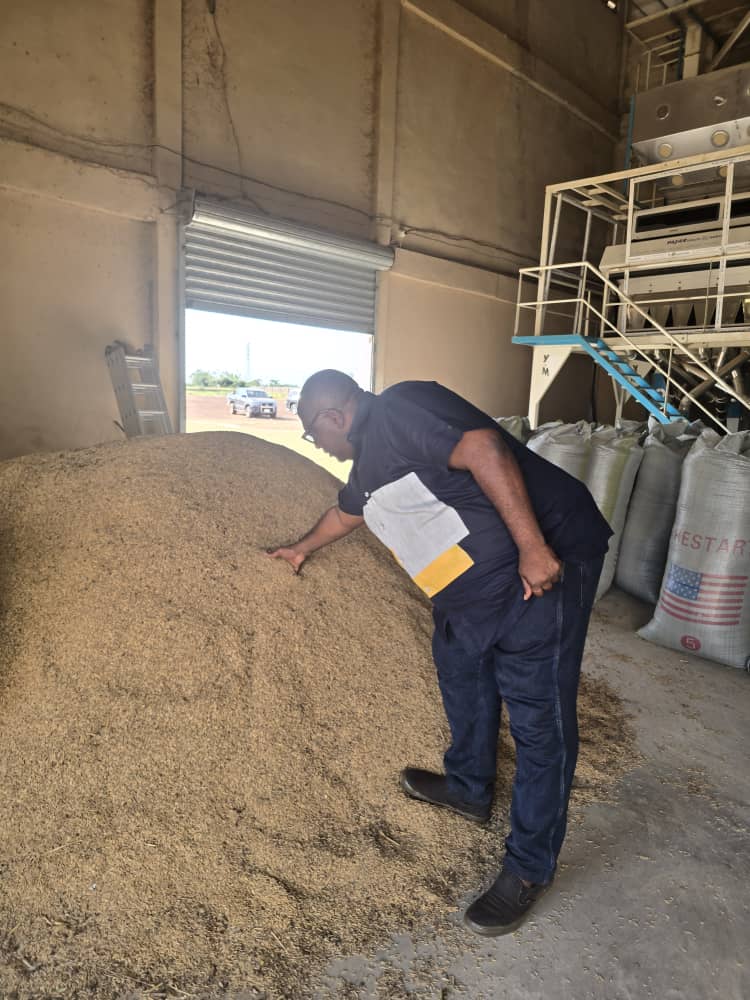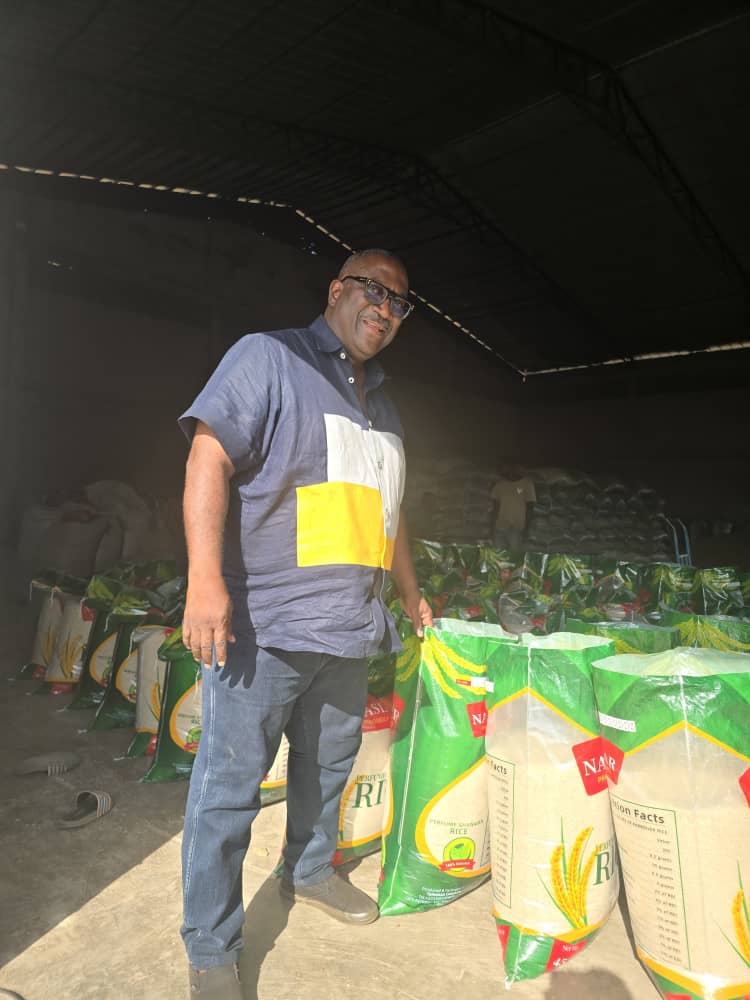I have just returned from a visit to the Northern Region of Ghana, and what I witnessed — and heard from farmers and millers across the north — was deeply troubling.
From Fumbisi and Wiaga in the Upper East Region, to Wa, Jirapa, and Sissala East in the Upper West, and from Yagaba and Nasia in the North East Region, to Salaga and Bole in the Savanna Region, one painful truth echoed everywhere: our rice farmers are in crisis.
The hope that once surrounded Ghana’s rice revolution has faded. Farmers who were promised a brighter future through local rice production now find themselves burdened with unsold harvests, mounting debts, and a growing sense of abandonment.


The Reality on the Ground
During my visit to Nantong, Yendi, Mion, Dalung, Karega, Savelegu, Bimbilla, Wulensi, and Gushegu — key rice-producing communities in the Northern Region — I met farmers and millers who were visibly distressed. Warehouses were packed with unsold rice. In some places, rice bags were torn and the grain had begun to mold.
One of the most striking moments of my trip came during a conversation with Alhaji Saibu Braimah, a respected farmer and rice miller with Tamanaa Rice. He stood in front of his quiet mill and shook his head slowly.
“Our problem is not production,” he said. “We can grow the rice — we have proved that over the years. But when the rice is ready, there is no market. We’ve reached a point where we are losing faith. Mills are shutting down, workers have been sent home, and farmers are stuck with their produce.”

His words summed up the mood across the north. Farmers from Navrongo, Fumbisi, Gulubise, Wesi, Gwedoma, Wiaga, and Sandema in the Upper East Region echoed the same frustration.
In Yagaba, Kubugu, Soo, Lechaa, Nasia, Janga, and Nakwondure in the North East Region, farmers told me they could not even afford to transport their rice from farms to storage points. Many had taken loans to plant under the Planting for Food and Jobs initiative, but now face losses that could cripple them financially.
The Smuggling Scandal That’s Killing Local Rice

Another farmer, Charles Nyaaba, who has been deeply involved in rice farming advocacy, spoke passionately about the devastating impact of rice smuggling on local farmers.
“We are losing the battle because of smuggled rice from our neighboring countries,” he said. “Burkina Faso and Togo rice is coming in freely and cheaply. They don’t pay our taxes, they don’t go through our ports, and they sell lower than what we can ever match. How can our farmers survive this?”
His frustration was palpable. Imported rice, often smuggled and untaxed, is flooding local markets. It is cheaper — not because it is better — but because it escapes the very rules our local farmers and millers are forced to obey.
The result? Ghanaian rice sits unsold while imported brands dominate supermarket shelves.
If nothing changes, Ghana risks destroying years of progress made in building a sustainable local rice industry. Thousands of farmers across the five northern regions — from Salaga to Wa, from Fumbisi to Nakpanduri — could lose their livelihoods. Rice millers like Tamanaa Rice may close permanently, and rural economies that depend on rice farming will collapse.
This is not only an agricultural problem — it’s a national crisis with economic, social, and moral implications.
Beyond the statistics are human stories: fathers unable to repay loans, women losing their only source of income, and young people giving up on farming altogether. As I spoke with the farmers, I could feel their growing despair. They feel forgotten.
If we truly care about national development, we cannot continue to look away. The government and private sector must urgently work together to rescue Ghana’s local rice industry.
Here’s what must happen — and now:
1. The Agric Ministry must arrange to buy up the excess rice stocks from farmers to stabilize prices.
2. Support rice millers with credit, logistics, and market linkages to sustain production.
3. Enforce strict border controls to stop the smuggling of rice into the country.
4. Relaunch the nationwide “Eat Ghana Rice” campaign, backed by public institutions, schools, and the hospitality sector.
A National Wake-Up Call

Standing in a warehouse in Savelegu, surrounded by piles of unsold rice, I thought about the sheer effort behind every grain — the ploughing, planting, weeding, and harvesting. To see all that labour go to waste is heartbreaking.
“This is not charity we are asking for,” Alhaji Braimah told me as we concluded our conversation. “We just want a fair chance. Let’s make Ghana rice the priority. Let’s save our farmers.”
He is right. This is not a northern crisis — it is a Ghanaian crisis. The survival of our rice farmers is linked to the survival of our economy, our food security, and our dignity as a nation.
If we act decisively today, we can still rescue the industry and restore hope. But if we delay any longer, we will lose not just our farmers, but the future of Ghana’s agricultural independence.
The time to act is now.
